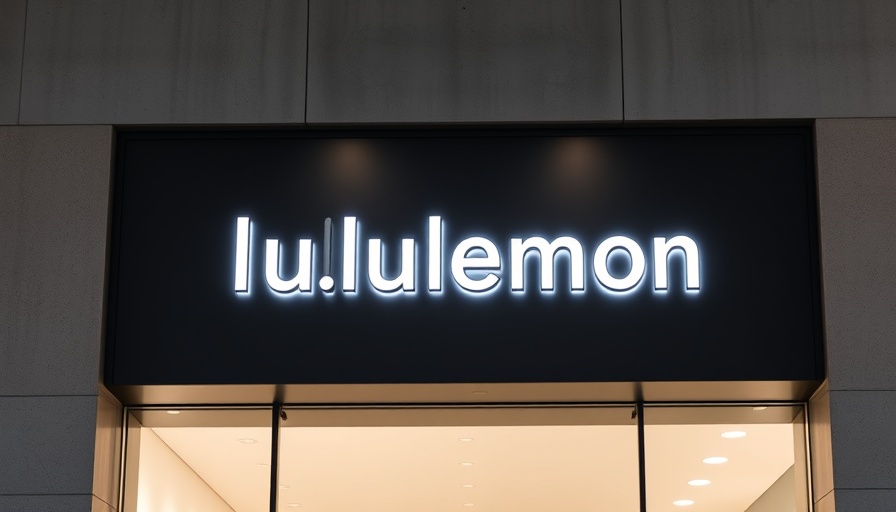
The Diving Conflict: Lululemon vs. Costco
The ongoing legal battle between Lululemon Athletica and Costco is raising eyebrows across the retail industry and among consumers. The lawsuit, recently filed in a California court, shines a spotlight on intellectual property rights and the implications of imitation products in today's crowded marketplace.
Understanding the Claims: What’s at Stake?
Lululemon is accusing Costco of infringing upon its intellectual property by selling alleged knock-offs of its well-known products, including the Scuba hoodies and ABC pants. These items, which are integral to Lululemon's brand identity, are reportedly being sold under Costco's private label, Kirkland, as well as through other manufacturers such as Danskin and Jockey. Lululemon contends that some customers mistakenly believe these dupes are genuine Lululemon products, and the lawsuit argues that this could harm the brand's reputation and goodwill that it has cultivated over the years.
The Market Dynamics: Implications for Consumers and Brands
As the lawsuit unfolds, consumers find themselves at a crossroads. For many, the allure of similar products at lower prices can be enticing. However, this situation raises questions about brand loyalty and the importance of supporting original products. While the appeal of affordable alternatives can lead buyers to Costco, the potential misconception about product authenticity poses a risk. Customers who opt for imitation products may unintentionally prioritize price over quality and brand integrity.
Counterarguments: The Perspective of Retail Giants
Costco has always prided itself on providing quality goods at competitive prices. Critics may argue that Costco’s Kirkland brand offers consumers beneficial alternatives to high-end products and that this fuels healthy market competition. Some proponents of the retail giant might also label Lululemon's lawsuit as an attempt to stifle innovation or limit consumer choice. This introduces a broader debate about consumer rights and the ethics surrounding branding and imitation.
A Historical Context: The Battle of Brands
The Lululemon v. Costco case is not the first of its kind. Historically, big brands have taken legal steps to protect their intellectual property. Such disputes often reflect the fine balance between protecting innovation and fostering competition. For instance, the luxury brand Gucci has repeatedly taken legal action against fast fashion retailers selling similar designs. The outcome of such cases often serves as a precedent impacting the fashion and manufacturing industries on a global scale.
Future Predictions: What This Means for Other Brands
As this lawsuit develops, its repercussions could resonate throughout the retail landscape. Should Lululemon succeed, it may embolden other brands to more aggressively pursue legal action against perceived infringements. Conversely, a ruling favoring Costco could encourage more retailers to adopt similar tactics, leading to increased competition which could further benefit price-sensitive consumers.
Consumer Impact: Understanding Brand Value
For consumers, this legal battle illustrates the real value of brand identity. Purchasing knock-offs, albeit financially enticing, often supports a cycle that undermines original creators. It may also prompt consumers to favor brands that emphasize authenticity and quality, thereby enhancing demand for ethically produced items. Should Lululemon prevail, it could advocate for the value of not only the products but also the integrity of the brands behind them.
Final Thoughts on Brand Integrity and Consumer Choices
The rising conflict between Lululemon and Costco reinforces the complicated relationship between consumer demand and brand investments. As this litigation continues, industry observers will closely watch how it influences consumer behavior, brand reputation, and the retail world at large.
Consumers should weigh their choices carefully. Emphasizing quality may sometimes cost more upfront, but it reflects an appreciation for craftsmanship and brand legacy. As the retail landscape shifts, the lawsuit sheds light on the importance of not only who we buy from but what we are supporting with our purchases.
 Add Row
Add Row  Add
Add 




Write A Comment